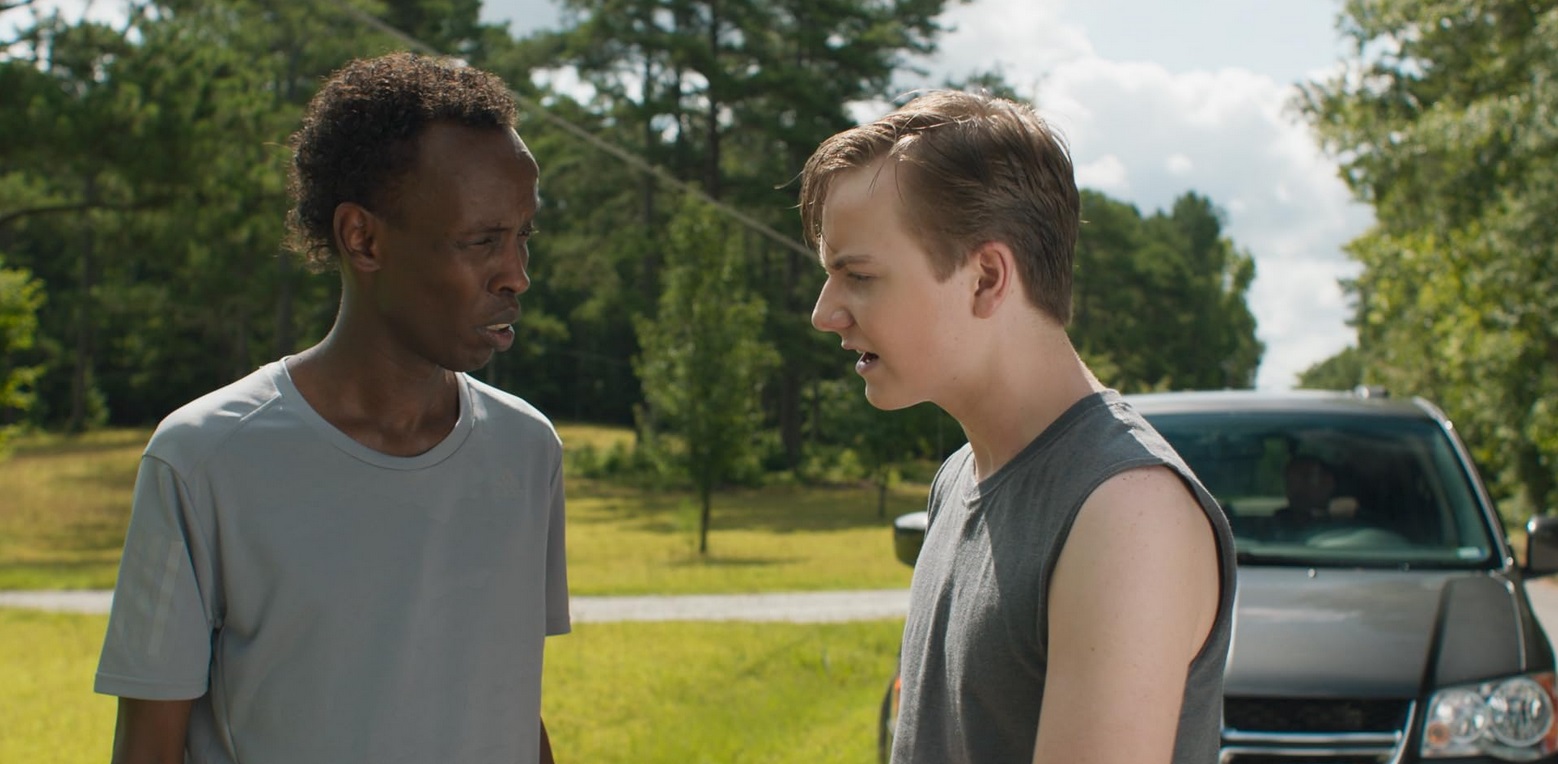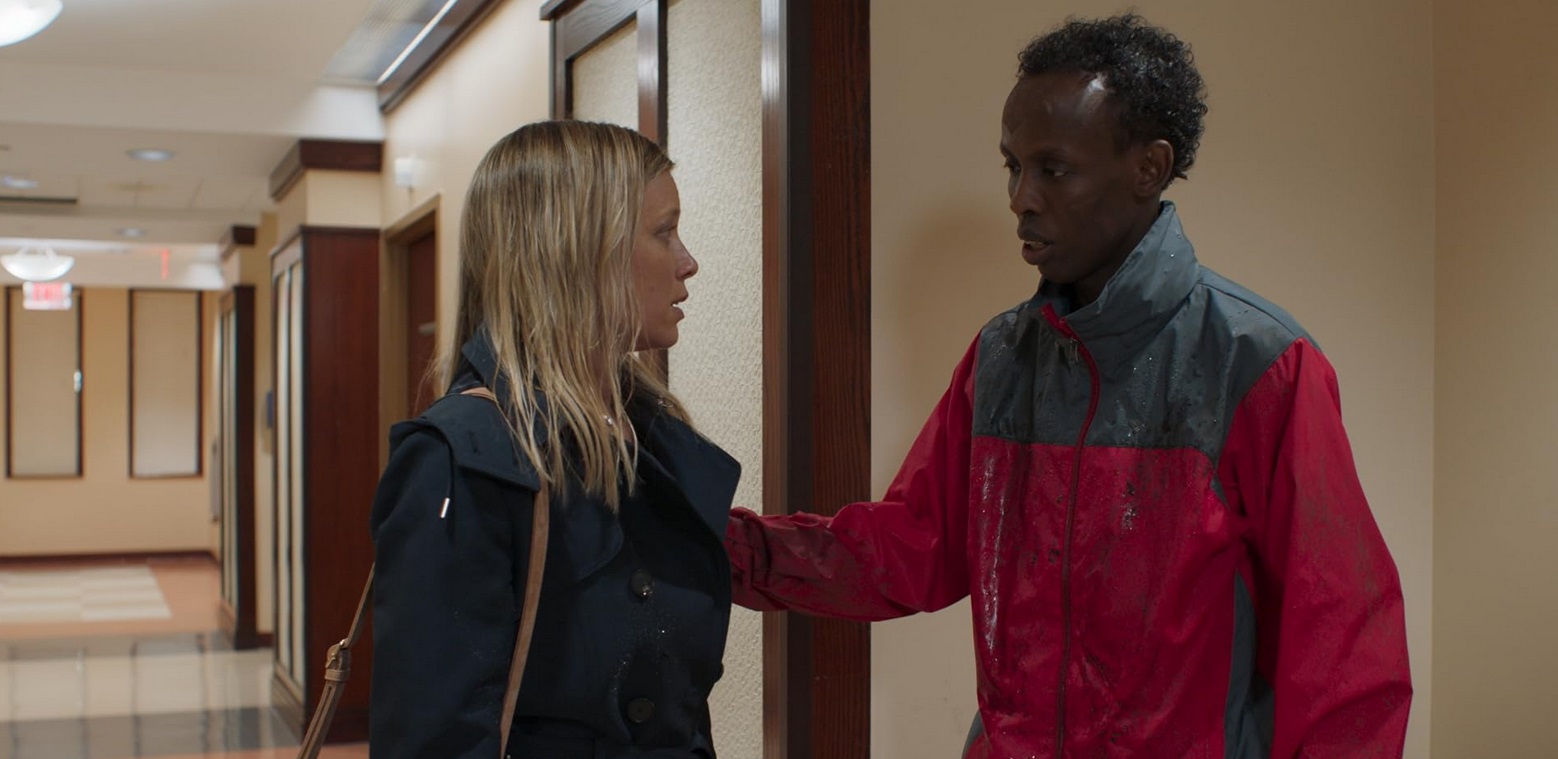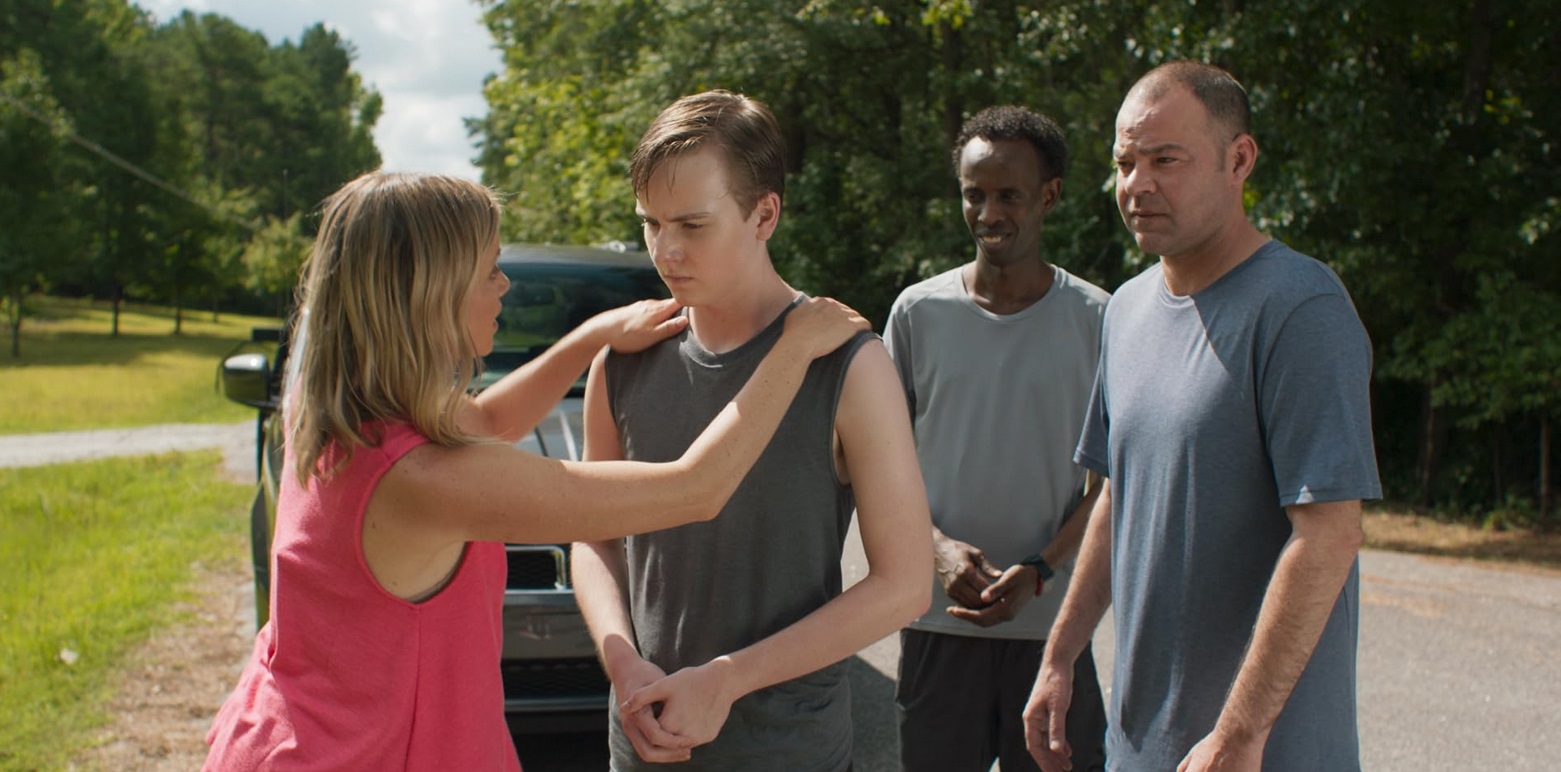Helmed by Kim Bass, ‘Tyson’s Run’ is a passion-driven experience possessing all the good qualities of an inspirational, feel-good drama. The 2022 film revolves around Tyson Hollerman (Major Dodson), a boy with autism who has little to no athletic abilities. His life drastically changes when he converts from being homeschooled to attending a public school. As fate would have it, Tyson meets a former marathon champion and requests him to train him for an upcoming citywide marathon. Through diligent training, overcoming many obstacles, and his family’s love, he pursues a chance to be a marathon winner and forever change the way people look at him. Since the film’s narrative and setting may seem authentic, many might be curious to know if ‘Tyson’s Run’ is based on real-life events.
Tyson’s Run is Loosely Based on Reality
While the film does an impressive job of portraying the life of 15-year-old Tyson (Major Dodson), the character is only loosely based on reality. Director and writer Kim Bass told the Observer-Dispatch in an interview that his interaction with an elementary school boy birthed the inspiration for the film. It revealed, “The inspiration for ‘Tyson’s Run’ came from speaking with a boy in his son’s elementary school class who didn’t want to run with the other students. ‘He told me, I know I’m fast, but all the other boys are super fast. So I don’t want to run anymore.’”

After this interaction, Bass began weaving together an idea that’s grounded in a realistic setting, with a heartwarming story of inspiration, and throwing in spots of humor for good measure. At its core, ‘Tyson’s Run’ illustrates an adolescent story of a 15-year-old boy with autism who finally gets a chance to prove himself. From attending a public school for the first time to being inspired to run a full marathon, Tyson’s tale is one of dedication and perseverance against all odds. This, in turn, lays the foundation for what could be a self-accepting life, allowing Tyson not always to be weighed down by the burdens of being different and the way society sees him.
Even though Tyson is laughed upon, which admittedly will make anyone feel disrespected, with the help of his newly made friends and his parents, he picks himself up, usually resorting to running as a therapeutic response. These situations and the eagerness to prove himself have an uncanny similarity in the real world. While Tyson isn’t real, his character is inspired by traits of real kids with autism going through the same issues. They may be slightly dramatized, but the crux of it remains the same. While most of the film follows Tyson, a great deal of it illustrates his parents, Bobby and Eleanor’s experiences of parenthood.
The film explores the challenges of raising a child diagnosed with autism and shielding them from the worries and negatives of the outside world. It additionally dives into the premise of their own relationship in the process. The way the movie depicts the trio’s connection is also one that’s seemingly been inspired by real-life accounts. In the film, Bobby Hollerman (Rory Cochrane) is a vastly successful high school football head coach with a 7-year unbeaten record. He’s a local celebrity for his accomplishments and is respected around the city. Bobby wants his son to succeed but feels that Tyson’s condition is a massive hindrance, which makes him conceal his son from the world outside.

While not directly accredited, one could argue that these emotions and intentions are deeply rooted in the reality of a father whose son is on the autism spectrum. Eleanor Hollerman, on the other hand, is a homemaker who has homeschooled Tyson since a young age. She is the unwavering support in Tyson’s life and sticks by him through thick and thin. Amy Smart, who plays Eleanor, revealed in an interview with The List that the research into her character pushed her to talk to a mother in a similar situation. She said, “I was able to talk to a mom who had a kid who had those similar characteristics (to Tyson) and to understand the way he thinks.”
The couple’s relationship is depicted as a complex one as they maneuver their own desires for their son — one more hesitant, the other not so. Concerning the boy’s relationship with his parents, Bass goes on to say, “Thinking if he (Tyson) becomes some kind of champion of something, his mother, and father will have a better relationship and his family will be healed. He thinks that’s the way to communicate with his father. This is just an ordinary family. It’s about faith, it’s about love, it’s about forgiveness.” Apart from his strong parents, Tyson meets two other important characters who support his journey. He meets Shannon at school, who gradually becomes fond of him.
Shannon supports Tyson as a friend, fending off all the juvenile insults he gets from other students. The two establish a bond of friendship unlike any other, much-needed for someone like Tyson. Shannon’s character symbolizes acceptance. She is the assurance that Tyson can be accepted by others, however immature they may be. He then meets Aklilu, a former marathon winner. Aklilu inspires Tyson to run and provides mentorship for his training. He gives Tyson valuable advice on the way – advice that will remain with Tyson for the rest of his life. Aklilu’s character symbolizes hope and endearment — key traits for Tyson that will embroider the fabric of his ambitions and dedication.
While both characters are fictional, they are key in representing Tyson’s endeavoring journey and the help he is able to find on the way. The film masterfully crafts Tyson’s interactions with people who are close to him and with everyone else, illustrating the importance of each character in establishing Tyson’s confidence and determination to succeed. It bathes itself in the “feel good” factor that makes all good inspirational dramas great. Tyson, his family, his friends, and his mentor may not be real, but their character traits have certainly been inspired by reality.
Read More: Best Feel-Good Movies on Netflix


You must be logged in to post a comment.